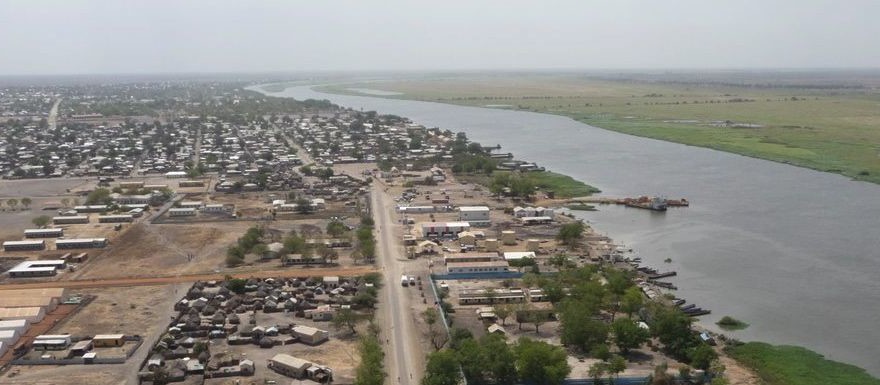Upper Nile State saw continuing clashes for a fifth straight day with heavy street-to-street fighting in the capital and a deepening humanitarian crisis.
South Sudan’s army (SPLA) is battling mutinous elements from various organized forces. Control over the state capital is contested and other towns have fallen.
Speaking to Radio Tamazuj from Malakal, a witness said that the situation is very bad and that clashes moved into residential areas after the defectors lost the main barracks to government forces.
“The barracks is empty – the government forces are following the defectors in the residential areas after they were driven out of the barracks that they occupied for days since the fighting broke out,” he explained.
A second witness and resident of the town who spent two days hiding on the floor under a bed says that in his experience the fighting was worse than clashes in 2009 or 2011. “It is the worst fight that Malakal has witnessed, many people may be killed,” he said.
He said that fighting moved into residential areas when the defecting forces were driven out of the barracks area and pursued by forces loyal to the government. He noted that combatants are both uniformed and non-uniformed.
Bodies in the streets
According to the Upper Nile Relief and Rehabilitation Commission (RRC), fighting on Thursday was so heavy that bodies could not be removed from the streets. “There is no way – there is now no way because there is shooting,” the director told Radio Tamazuj this afternoon.
Peter Pal Chol, RRC director in the state, said that he told his team “If the situation calms down you will go and collect the bodies, because they cannot do it now due to the shooting that is happening.”
Chol called for an end to the fighting so that humanitarian workers can go out to their work. He said that his team is on standby to start working once the fighting ends in Malakal town.
He further declined to make an estimate of the number of casualties, but said he believes that casualties could be high because the fighting took place not only in the army barracks but also in areas occupied by the civil population.
Looting at market
The entire market has been looted and some shops were set on fire. Several witnesses said that the looting was carried out by retreating defectors after they were driven out from an army barracks in the town.
One eyewitness speaking to Radio Tamazuj said that he saw the mutinous forces looting and carrying goods from the market to the southern outskirts of Malakal town.
The second witness confirmed the allegation that the defected forces were looting and breaking into the shops in Malakal market.
“The attackers were driven out and they came back in the town wearing South Sudan wildlife and prison warden uniforms,” said the witness.
By evening it appeared that some southern residential areas were still under control of the so-called ‘Machar’ forces, while loyal government forces occupied more of the northern part of the town.
SPLA spokesman Col. Philip Aguer confirmed in an interview with AFP news agency that the town was still contested: “Our forces are in the northern part of Malakal and the rebels are on the southern part. We will flush them out of Malakal.”
Civilians flee
About 10,000 residents of Malakal fled to the UNMISS compound. Speaking to Radio Tamazuj, a university student who was among those in the compound said that children and women are the majority.
Many more people have left the city. Majok James, a civil society activist taking refuge at Akoka about 60 kilometres north of Malakal, said that the crowd of displaced there included some government officials such as the minister of finance, minister of information and speaker of parliament.
According to the director of the state relief commission, some citizens were unable to either leave the city or to enter the UN or were denied entry. “I am outside UN compound because they didn’t want to let us in,” he said. Many people were trapped in areas of the city without UN protection.
The director Peter Pal Chol said that those remaining are reported to have resorted to taking drinking water from the river because of lack of access elsewhere. “We try to contact UN agencies such as WFP and UNICEF to help people but it’s not possible,” he said.




